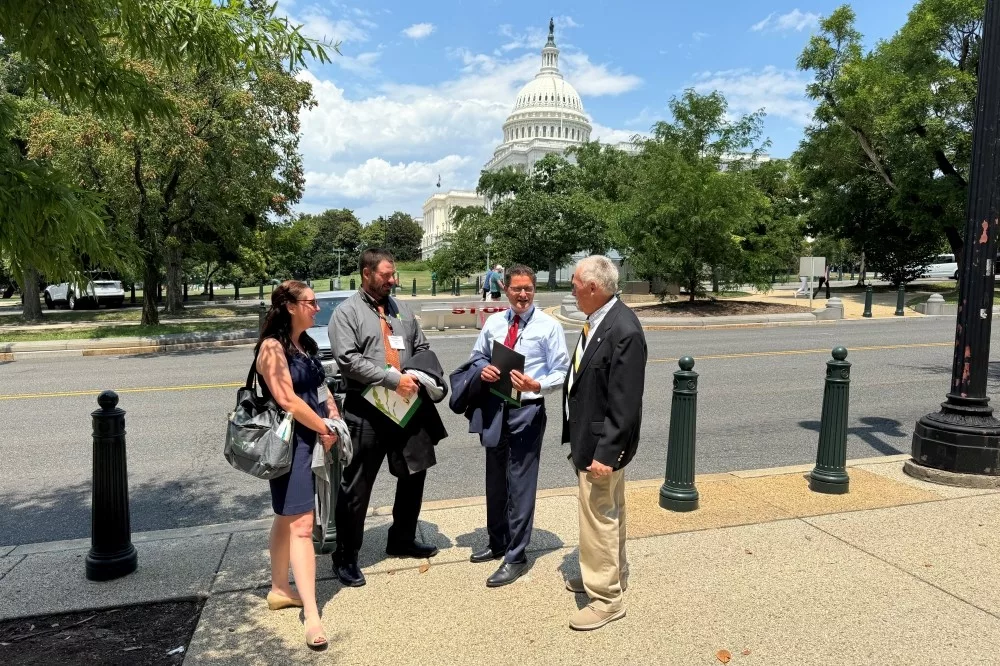
Obviously, getting the Farm Bill finished is priority one for farmers in Washington, D.C., but corn growers were sure to take the opportunity to discuss other priorities on Capitol Hill this week.
U.S. corn growers will grow somewhere around 15 billion bushels of corn in 2024. Just under 6 billion bushels of that will go toward ethanol production.
“So, we already have through the Renewable Fuel Standard an E10 level, 10% ethanol blended in every gallon of gasoline. We’d like to see that move to E15 or a 15% level,” says Indiana Corn Growers Association board member Alan Dunn, a Clinton County farmer. “That’s being held up with some regulations that are different across the country that make it inconsistent on where you can find it and when you can find it. So, we’re trying to fix that legislatively by introducing a nationwide E15 standard.”
It’s also being held up in the Senate. The Nationwide Consumer and Fuel Retailer Choice Act of 2023 is a bipartisan bill that’s currently stalled in committee. Dunn says allowing year-round E15 will save consumers at the pump, an average of 15 cents per gallon, and provides the environmental benefits everyone is looking for.
“We have the ability to produce a safe and reliable fuel supply that does not require mining of rare earth minerals from some other part of the world or worries about how you’re going to dispose of an old battery, or any of those kinds of problems that we have. We just have a 100% renewable product made from the energy of the sun that is produced here in the United States. And it just seems like a no brainer.”
The frustrating part of this for corn growers is that this should be one of the rare areas where both Republicans and Democrats can agree. Dunn and others shared this with staffers from both parties on Capitol Hill Wednesday.
“The economic impacts and the environmental impacts both come together right where we all want to be. And so why are we not moving forward? What is the difficulty? So, we tried to point out some of those commonsense areas of similar thinking, and hopefully, we made a difference.”
E15, or Unleaded 88 as you might see it at the pump, is approved for use in all light-duty vehicles built in 2001 or later.





